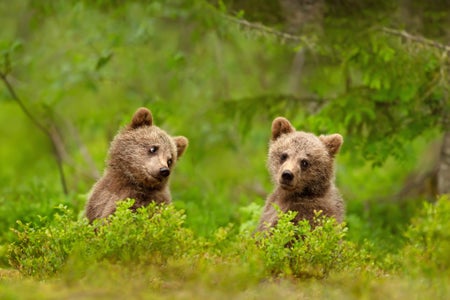
‘If Not Friend, Why Friend-Shaped?’ A Beary Scientific Investigation
Why are bears both adorable and deadly? Scientific American investigates why these apex predators are “friend-shaped”
Carin Leong is a documentary filmmaker based in New York. Her projects have received support from Field of Vision, the Singapore International Film Festival, IN-DOCS, and the Tribeca Film Institute. Her work has appeared in Scientific American, Hakai Magazine, and The Atlantic. She holds a master's degree in science journalism from Columbia University's Graduate School of Journalism and is also a graduate of New York University's Tisch School of the Arts.

‘If Not Friend, Why Friend-Shaped?’ A Beary Scientific Investigation
Why are bears both adorable and deadly? Scientific American investigates why these apex predators are “friend-shaped”
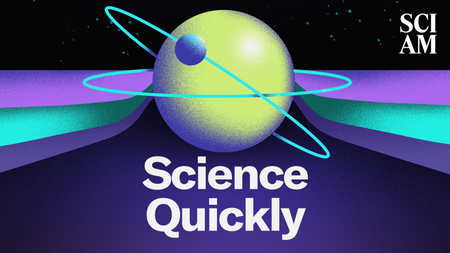
Auroras Are on the Horizon, and Bird Flu Is on the Menu
Vaccine misinformation on social media, smartphone addiction in teens, and more are discussed in this week’s news roundup.
New IVF Test Could Increase Chances of Pregnancy Success
A noninvasive test for genetic material could predict embryo quality in IVF.
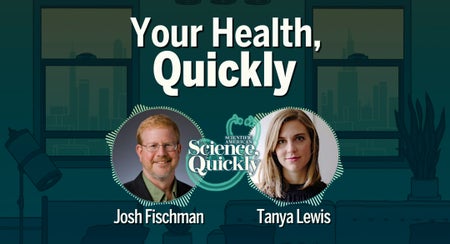
The Best Way to Use Home COVID Tests Right Now
When symptoms start, COVID tests may say you’re not infected when you really are.
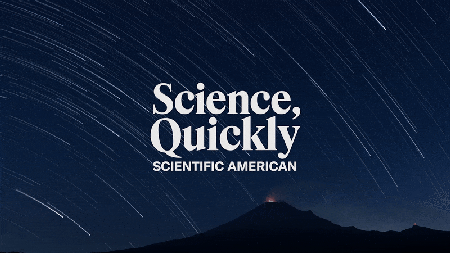
The Strange and Beautiful Science of Our Lives
Nell Greenfieldboyce discusses her new book Transient and Strange, the intimacy of the essays and the science that inspired them.
Podcasts of the Year: Cleo, the Mysterious Math Menace
In 2013 a new user named Cleo took an online math forum by storm with unproved answers. Today she’s an urban legend. But who was she? A 2023 editor's pick.
Are Orcas Friends or Foes?
The stories we tell about orcas might say more about us than about them
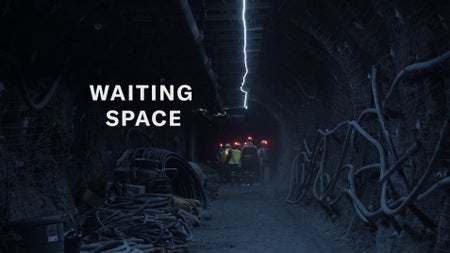
A Small Town Waits for a Dark Matter Gold Rush
Residents of a mining town waits for economic recovery while physicists under their feet wait for answers from the universe.
Why Childhood Vaccination Rates Are Falling
Fewer kids got their routine childhood vaccines since before the pandemic. Are lack of access and a loss of trust in science to blame?
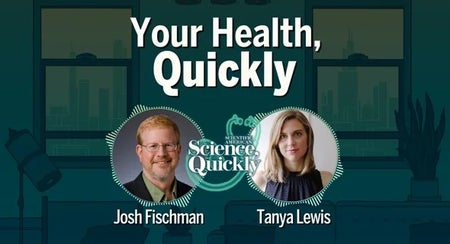
What Are Ultraprocessed Foods, and Are They Bad for You?
More than half of our diet consists of foods that have been industrially processed in some way, and they may be harmful to our health
A Popular Decongestant Doesn’t Work. What Does?
The popular decongestant phenylephrine is not effective, an FDA panel found. Here’s what to use instead.
Song of the Stars, Part 3: The Universe in all Senses
An astronomy festival in Italy opted to make all of its events and workshops multisensory. The organizers wanted to see whether sound, touch and smell can, like sight, transmit the wonders of the cosmos.
Song of the Stars, Part 2: Seeing in the Dark
A blind astronomer “sonified” the universe’s most explosive events: gamma-ray bursts. By listening to, rather than looking at, the data, she made a critical discovery and changed the field of astronomy.
Song of the Stars, Part 1: Transforming Space into Symphonies
Space is famously silent, but astronomers and musicians are increasingly turning astronomical data into sound as a way to make discoveries and inspire people who are blind or visually impaired.
Should You Get a Blood Test For Alzheimer’s?
Consumers can now get easy tests for Alzheimer’s. But these tests may not really help patients that much—yet.
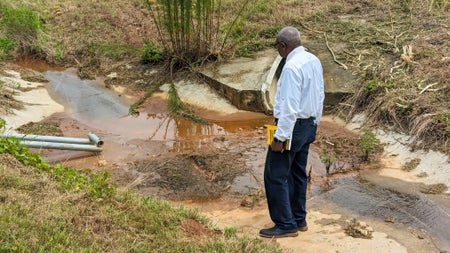
The Father of Environmental Justice Reflects on the Movement He Helped to Start
Four decades into his activism, Robert Bullard looks back on his legacy and the work ahead.
Ada Limón’s Poem for Europa, Jupiter’s Smallest Galilean Moon
U.S. Poet Laureate Ada Limón discusses her involvement in NASA’s Europa Clipper mission and the inspiration behind her poem, which will travel onboard the spacecraft.
This Tick Bite Makes You Allergic to Red Meat
The bite of the lone star tick makes people allergic to a sugar found in mammalian products, and many doctors don’t know about it.
Hearing Aids Stave Off Cognitive Decline
Hearing aids may help maintain better brain functions in older people and better health overall.
Here’s What Oppenheimer Gets Right—And Wrong—About Nuclear History
Here’s what a historian who has studied J. Robert Oppenheimer for two decades has to say about the new Christopher Nolan film on the father of the atomic bomb.
How Stress Messes With Your Gut
Inflammatory bowel disease flare-ups can be traced to mental stress
Doctor AI Will See You Now
ChatGPT and other AI programs can offer medical advice. But how good are they?
Have Astronomers Seen the Universe’s First Stars?
The James Webb Space Telescope is giving us our first glimpse of stars in the early universe.
Cleo, the Mysterious Math Menace
In 2013 a new user named Cleo took an online math forum by storm with unproved answers. Today she’s an urban legend. But who was she?